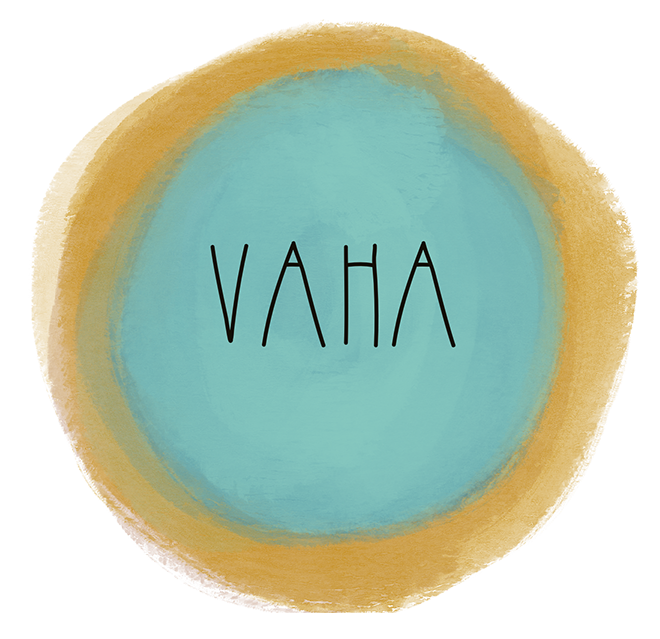Antalya’s VOYN! Hub in Caldas da Rainha, Portugal
Between 21 - 25 March 2022, we had the chance to attend CES Summer School, organised by the amazing coordination team of CREATOUR from Centre for Social Studies (CES) - University of Coimbra, in collaboration with SILOS Contentor Criativo, in the city of Caldas da Rainha, Portugal. We were very excited about this course since the first time we heard about it, as we believed that cultural mapping is a subject very much related to VOYN! Hub’s framework; thus, we would gain new insights and knowledge to reflect on our upcoming activities.
This five-day intensive course was mainly about working on the design and conduction of cultural mapping practices in order to identify local cultural assets, stories, traditions, relationships, memories, and rituals of a place. Our subject city Caldas da Rainha, which was selected as a UNESCO Creative City of Crafts and Folk Arts in 2019, was one hour drive away from the city of Lisbon.
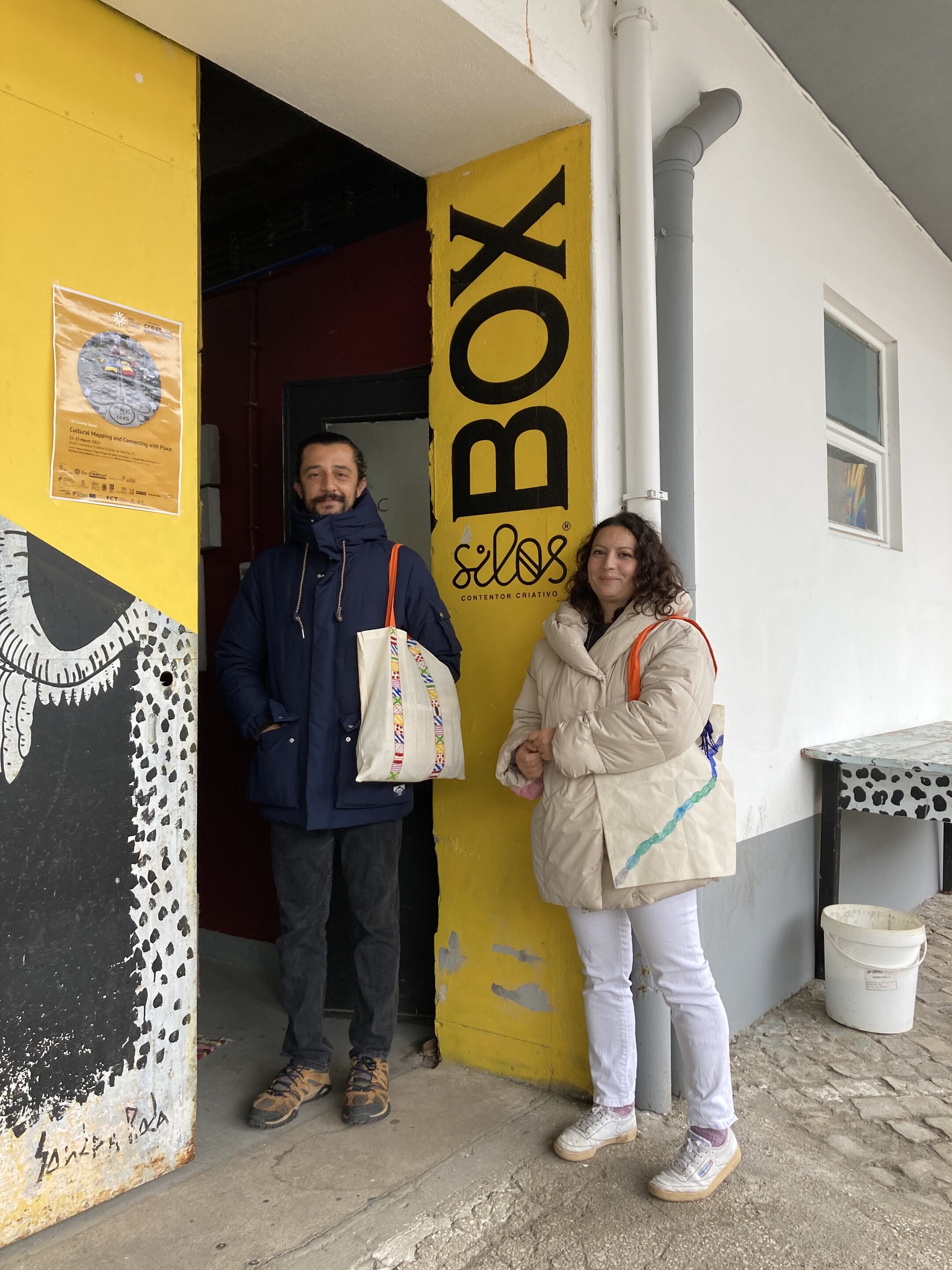 Hü and Ilgın at SILOS with their handbags they designed on the first day of the course
Hü and Ilgın at SILOS with their handbags they designed on the first day of the course 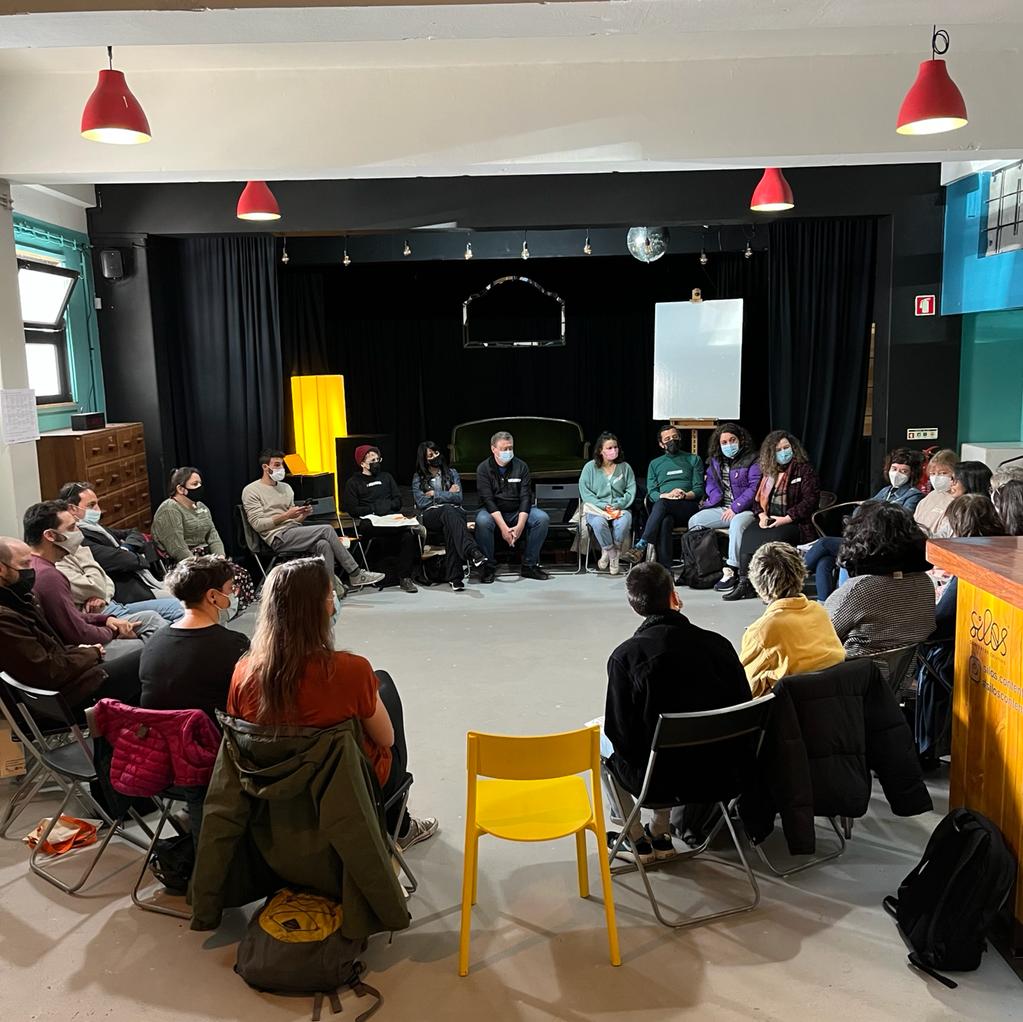 Summer school kick-starting
Summer school kick-starting We arrived at Caldas at night on 20 March, after our brief sightseeing tour in Lisbon. While we were walking to our hotel, we could notice that the buildings were covered by glamourous tiles even in the dark. Caldas is best known for its thermal healing water and ceramic pottery, and these were the characteristics of the city that we learned even before arriving. Yet, we were excited to discover more about this place throughout the week.
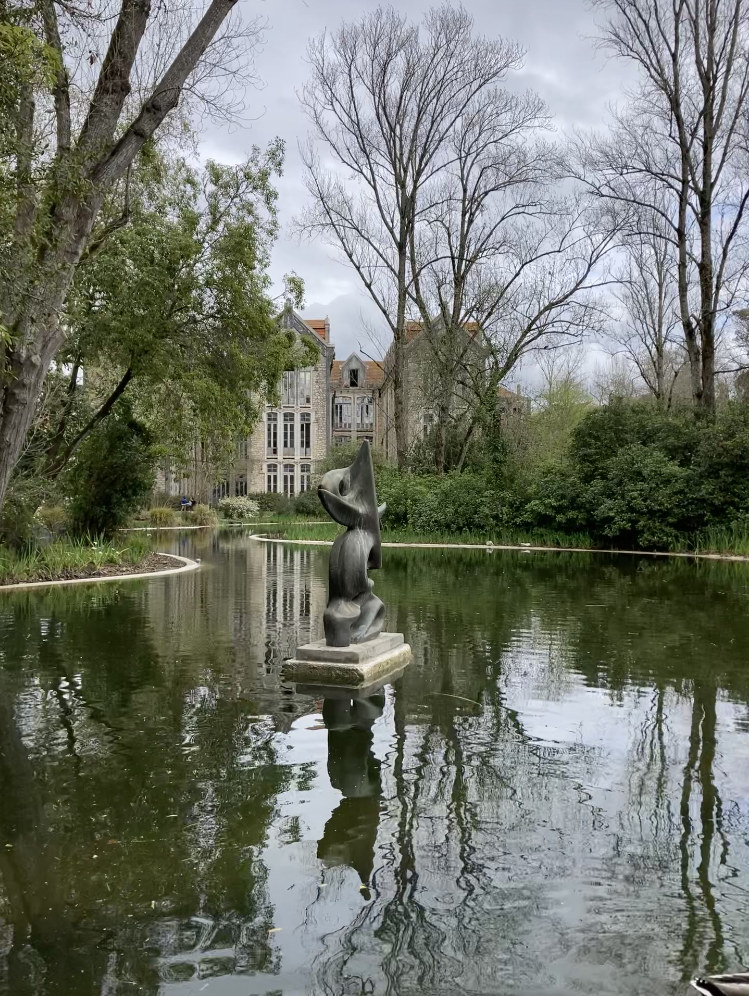 The Park of D. Carlos I, located right in the heart of the city
The Park of D. Carlos I, located right in the heart of the city 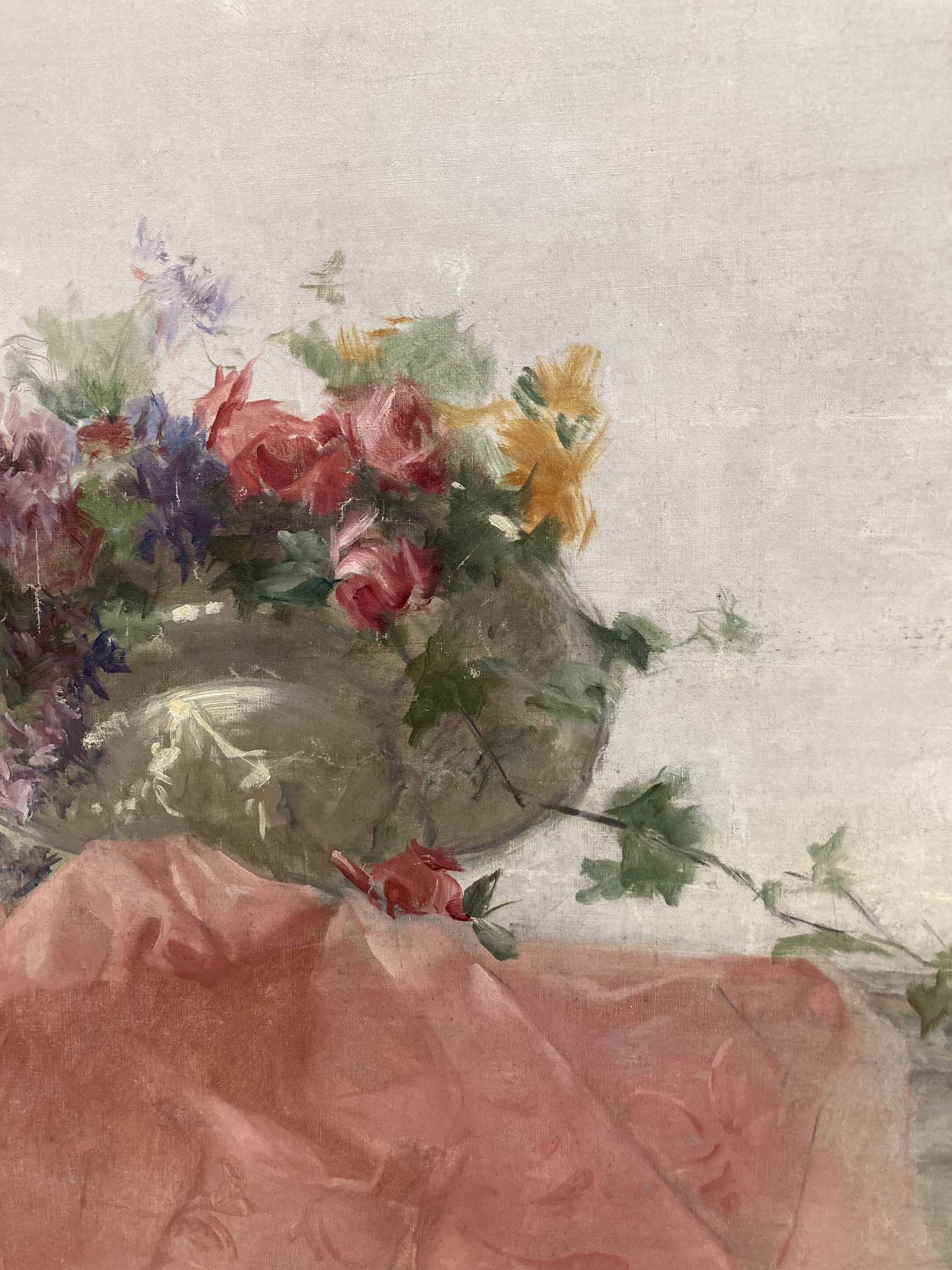 A detail from a painting in José Malhoa Museum
A detail from a painting in José Malhoa Museum 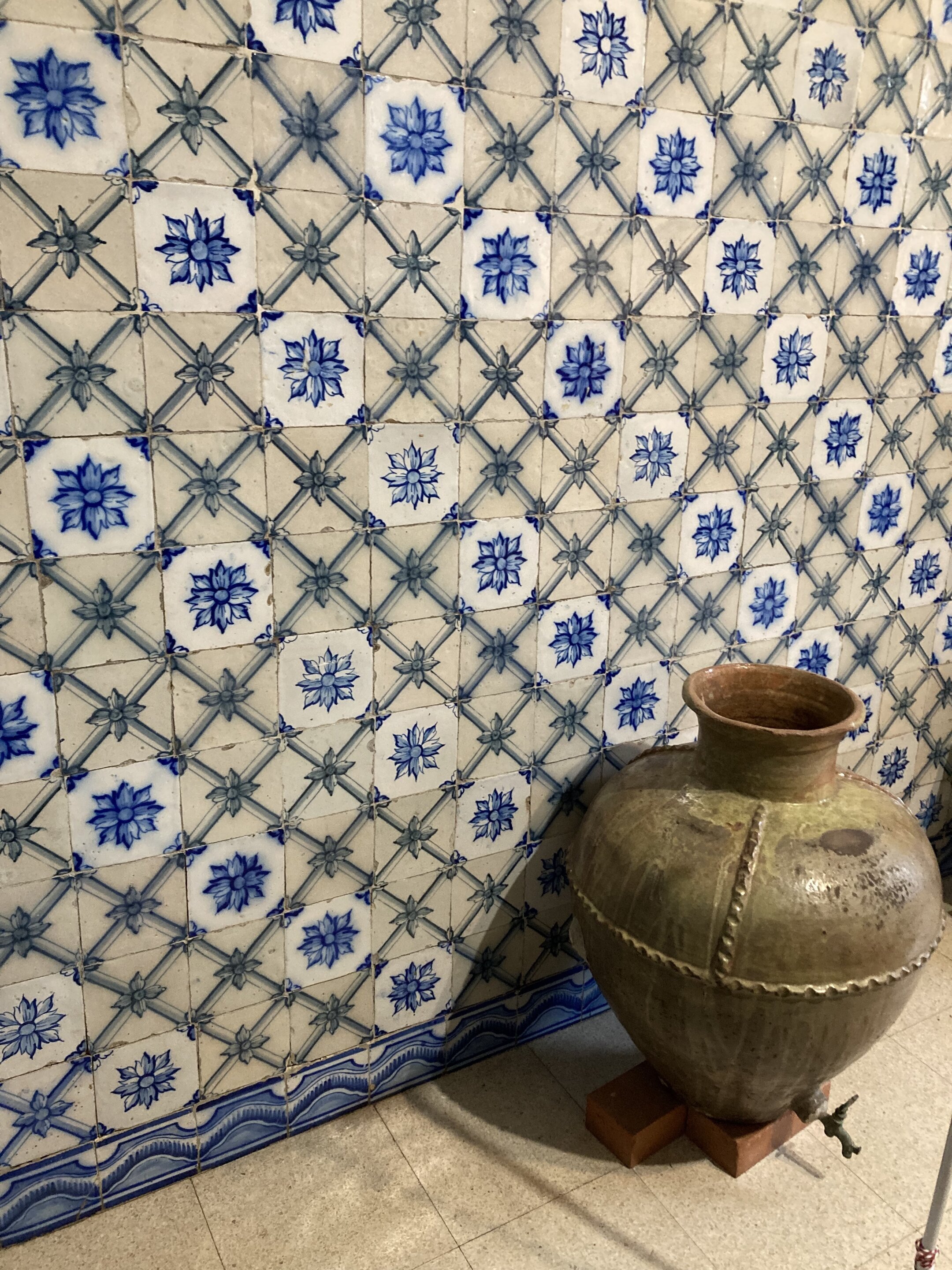 Tiles from the Ceramics Museum in Caldas
Tiles from the Ceramics Museum in Caldas On the first day of the course, we went to our main venue, SILOS Contentor Criativo, a studio complex for creators that is located in an old grinding factory, to meet with the participants and the team. After talking about the overview of the week and having small ice-breaking activities, we had a short tour in the center of Caldas in order to gain an overall knowledge about the city in terms of local historical and contemporary context. The tour was conducted by a local partner Mariana Calaça Baptista, a cultural activist and an architect from the city of Caldas. Our tour with her to the Park of D. Carlos I, José Malhoa Museum and the Ceramics Museum, gave us a glimpse of the issues and opportunities of the city.
After this introductory and relatively light day, we had a very busy schedule for the rest of the week full of daily visits, learning seminars, and hands-on workshops, in which we have actively learned about and engaged in cultural mapping exercises while addressing place-specific real-life local development issues. The schedule was mainly divided into three subject areas: “Territory and Place”, “Stories of Community” and “Self Perspectives”. By using several mapping exercises that were shaped around these main subjects, we aimed to examine, discuss, and bring new ideas to existing development activities aiming to attract and sustain cultural and creative characteristics of Caldas. By the end of this five-day school, we were expected to make a final public presentation, which touches on local development issues, to the city’s UNESCO Creative City designation, and to the fostering of cultural and creative tourism in the city.
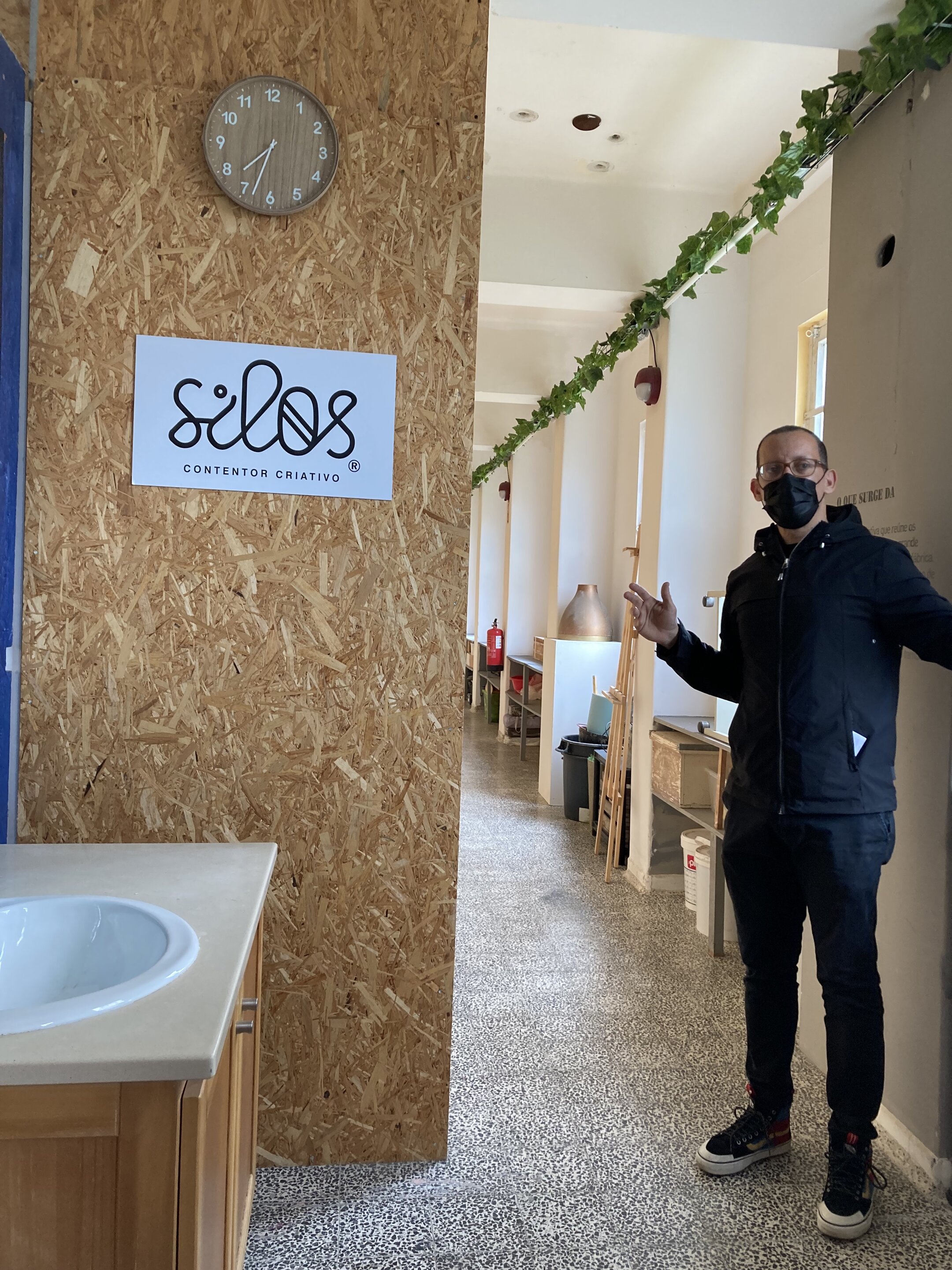 Nicola showing studios at Silos Contentor Criativo
Nicola showing studios at Silos Contentor Criativo 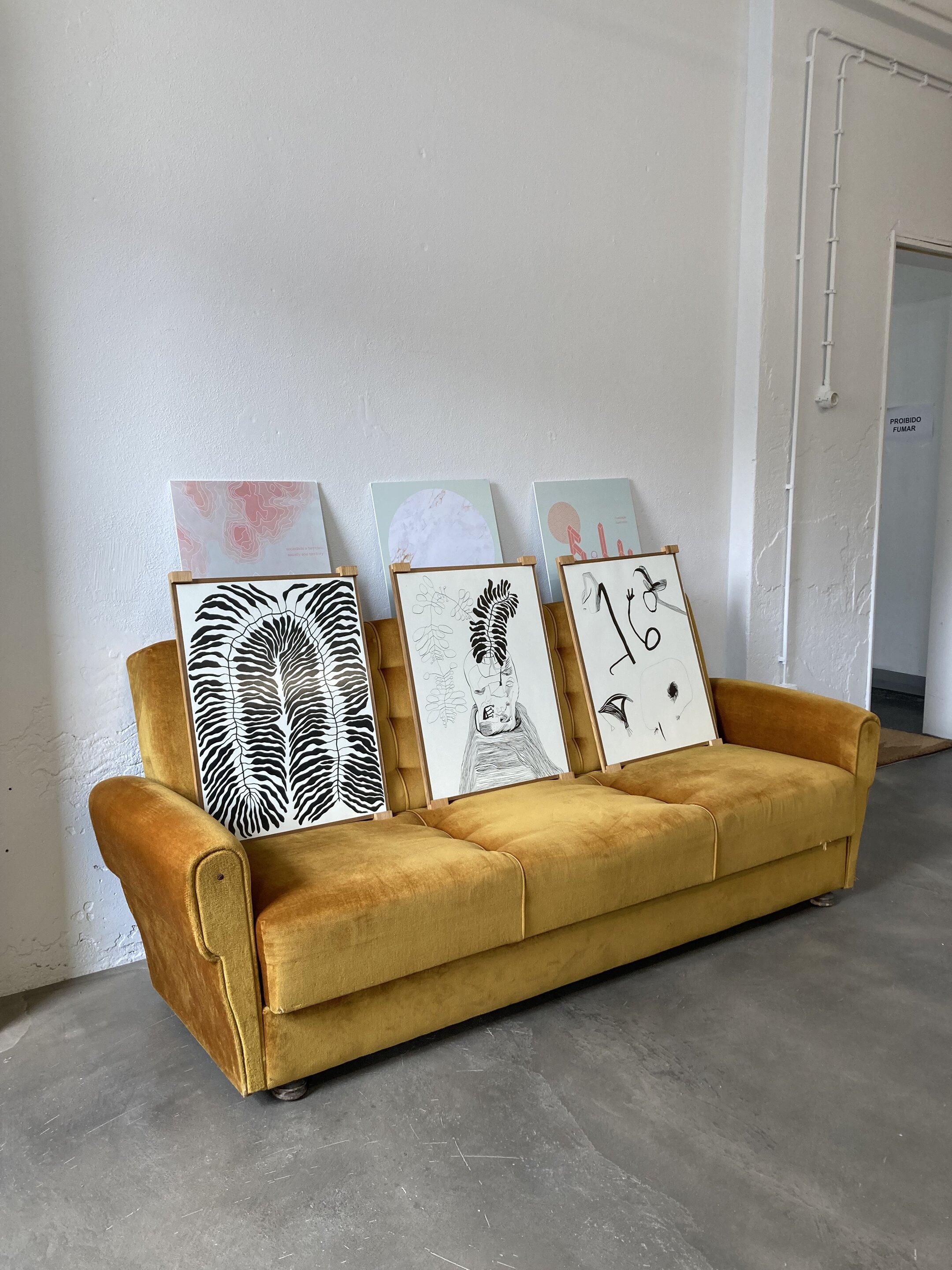 Art pieces in an architecture studio
Art pieces in an architecture studio On the second day of the course, we made an introduction to the theme of “territory and place” with two talks, first of which was on “Cultural Mapping History and Contemporary Approaches” by Nancy Duxbury. Nancy, introduced us to numerous definitions and approaches to the subject of cultural mapping, which can apparently offer many layered platforms of sharing and learning, diversity, research, etc. The second talk of the day was about “UNESCO Creative City Designation” of Caldas da Rainha by Conceição Henriques, the head of Culture Department at the Municipality of Caldas. Caldas da Rainha managed to obtain its UNESCO designation after going through several application phases eventually in 2019, right before the Covid-19 outbreak and will be subjected to a monitoring evaluation after four years from that year. If you want to know more about this UNESCO label, you might want to have a look at the application guidelines here. By the end of these two sessions, not only learning from Nancy’s comprehensive knowledge proved to be a true opportunity, but also gaining a perspective from a direct actor from local administration allowed us to have a better understanding of our context.
After the seminars, Nicola Henriques presented us the SILOS Contentor Criativo project. With all the keys he showed us from his pocket on the first day, Nicola is indeed the “key man” of the contemporary creative scene in Caldas and describes himself as an imagineer, mentor, networker and social entrepreneur. At SILOS, there are 24 studios available for creators/residents coming from different fields and a gallery and “an event box” where many events and activities have been held. We met some SILOS-based creators and interviewed them as a group in order to get an understanding of Caldas from emerging creators’ point of view. Our questions were shaped around the themes of connection, inspiration and resources, through which we tried to learn if these creators based in the same creative hub, SILOS, had similar aspirations regarding their creative work and Caldas da Rainha.
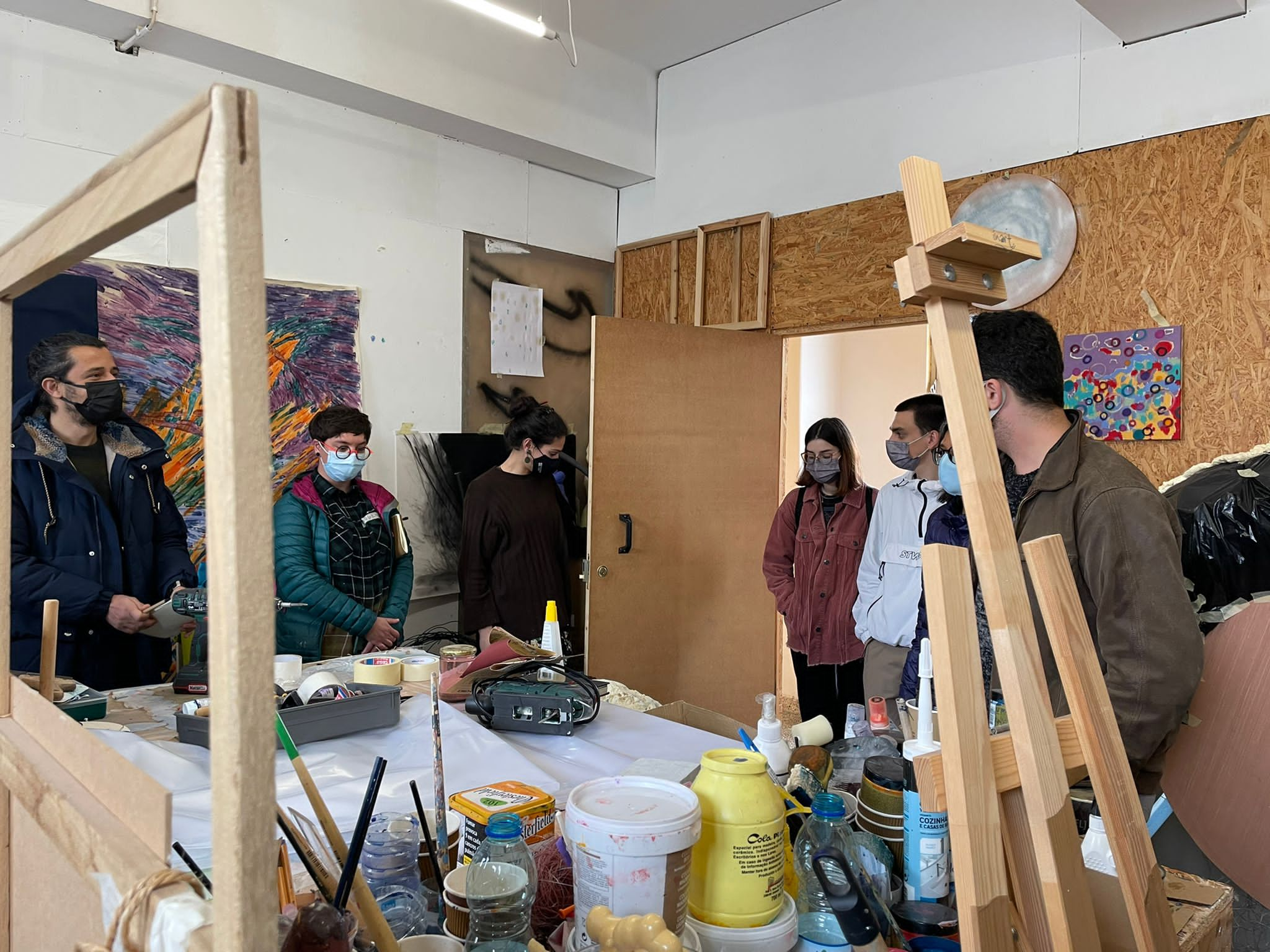 Inside of a creator’s studio
Inside of a creator’s studio As the day of “stories of community” begins, we started our third day with sessions on the subjects of “Cultural Mapping with Communities in World Heritage Sites and Vacant Urban Landscapes” by Cláudia Carvalho; and “Story Mapping Initiatives” by Shamila Rahim. Since dimensions of community-based practices are considered as key factors in cultural and creative sectors, these sessions enabled us to search new layers of local knowledge by engaging people and their memories, stories, anxieties and desires of a place. We analysed the issue of rediscovery of places by using local knowledge via several case studies in different cities of Portugal and Cape Town from South Africa. Later in the afternoon, we had two site visits to catch stories of two different groups of people; art students and established creators, living in Caldas. By the end of the day, we had a brief understanding of a creator’s timeline from being an art student, an emerging artist and an established creator in this specific city. Creators who were at different stages of their career, stated that living and producing in this small creative city is fruitful, yet a challenging experience due to limited opportunities.
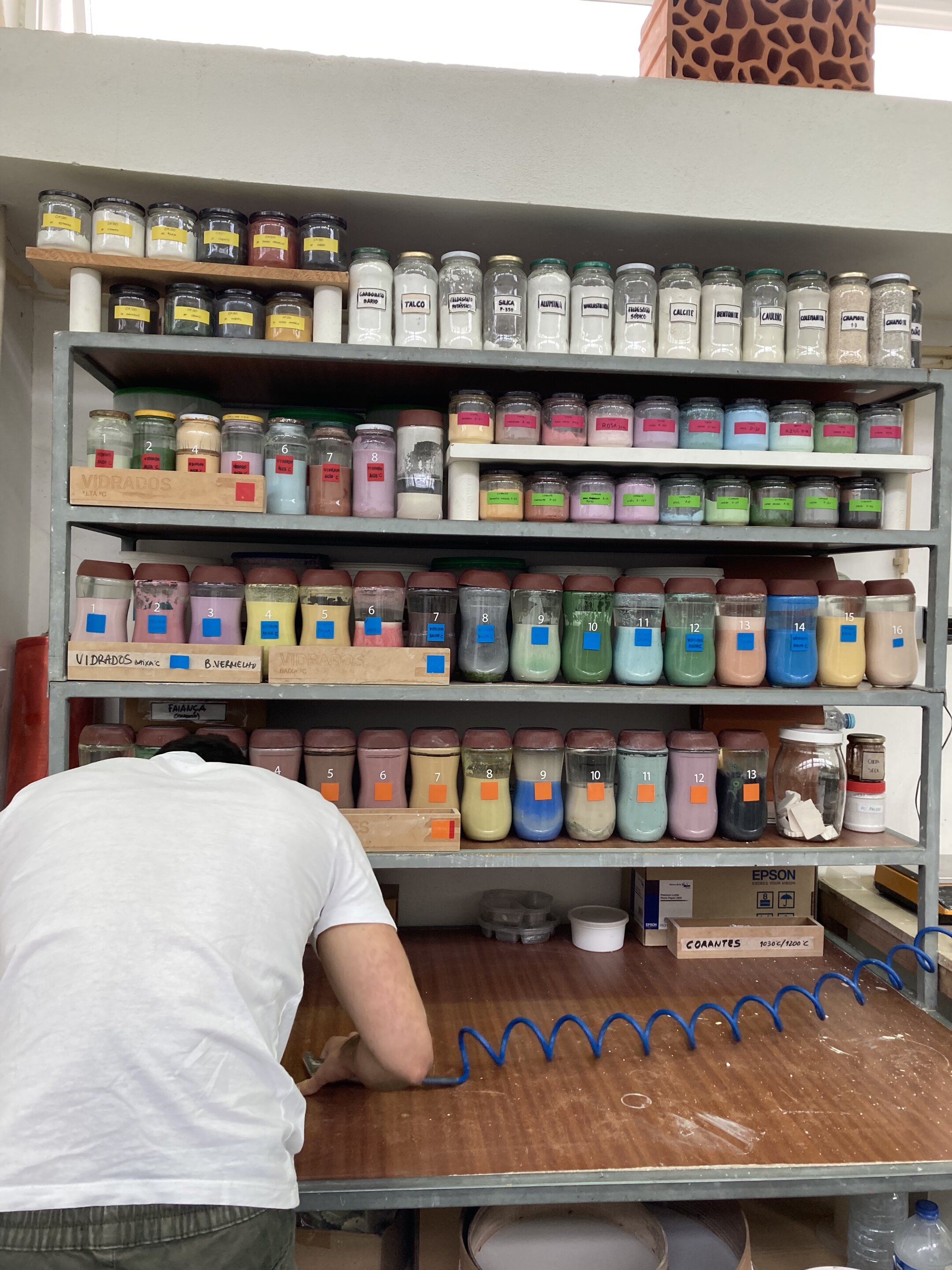 A ceramics student working on patterns for the tiles
A ceramics student working on patterns for the tiles 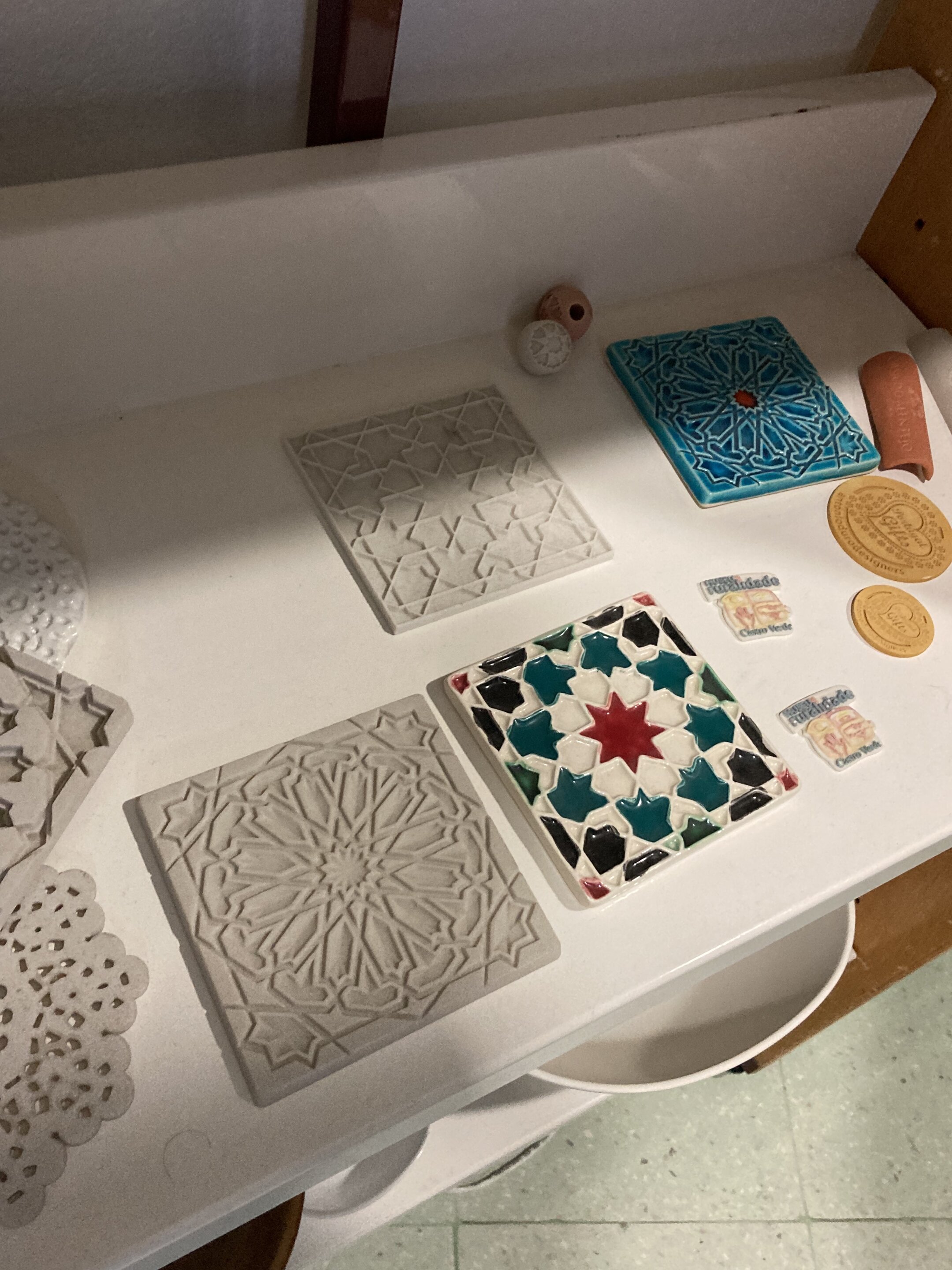
On our fourth day of the workshop, we dived into “self perspectives” by presentations of the Canadian speaker team via Zoom. Although we had them in person at the beginning of the week with us, unluckily one of them tested positive later and the whole team put themselves in quarantine. However, we were impressed by their motivation for being present with us even online, on the subject of “Recognizing and Interpreting Maps of Lived and Living Experience”. With the help of their presentations and group exercises, we learned new methodologies such as story mapping, journey mapping and audio walks.
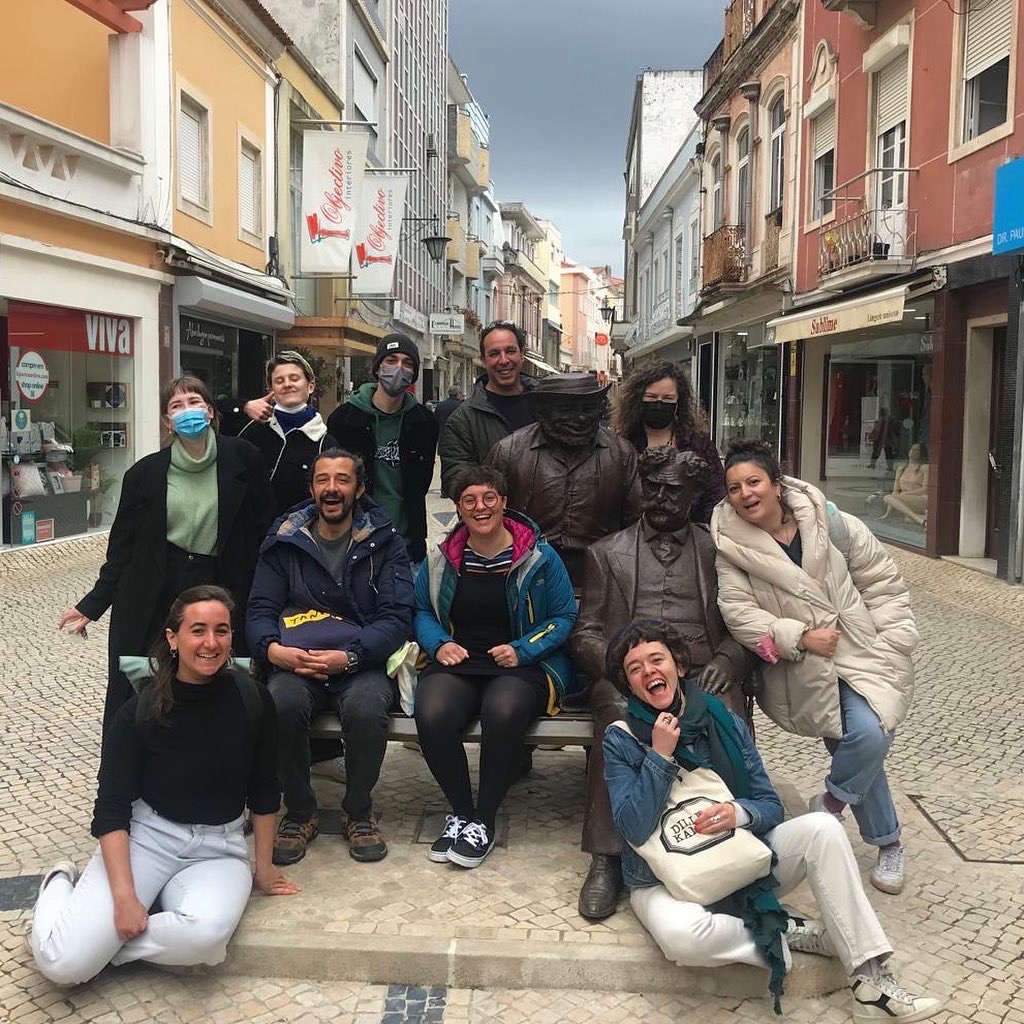 Participants having a short walk in the center of Caldas
Participants having a short walk in the center of Caldas 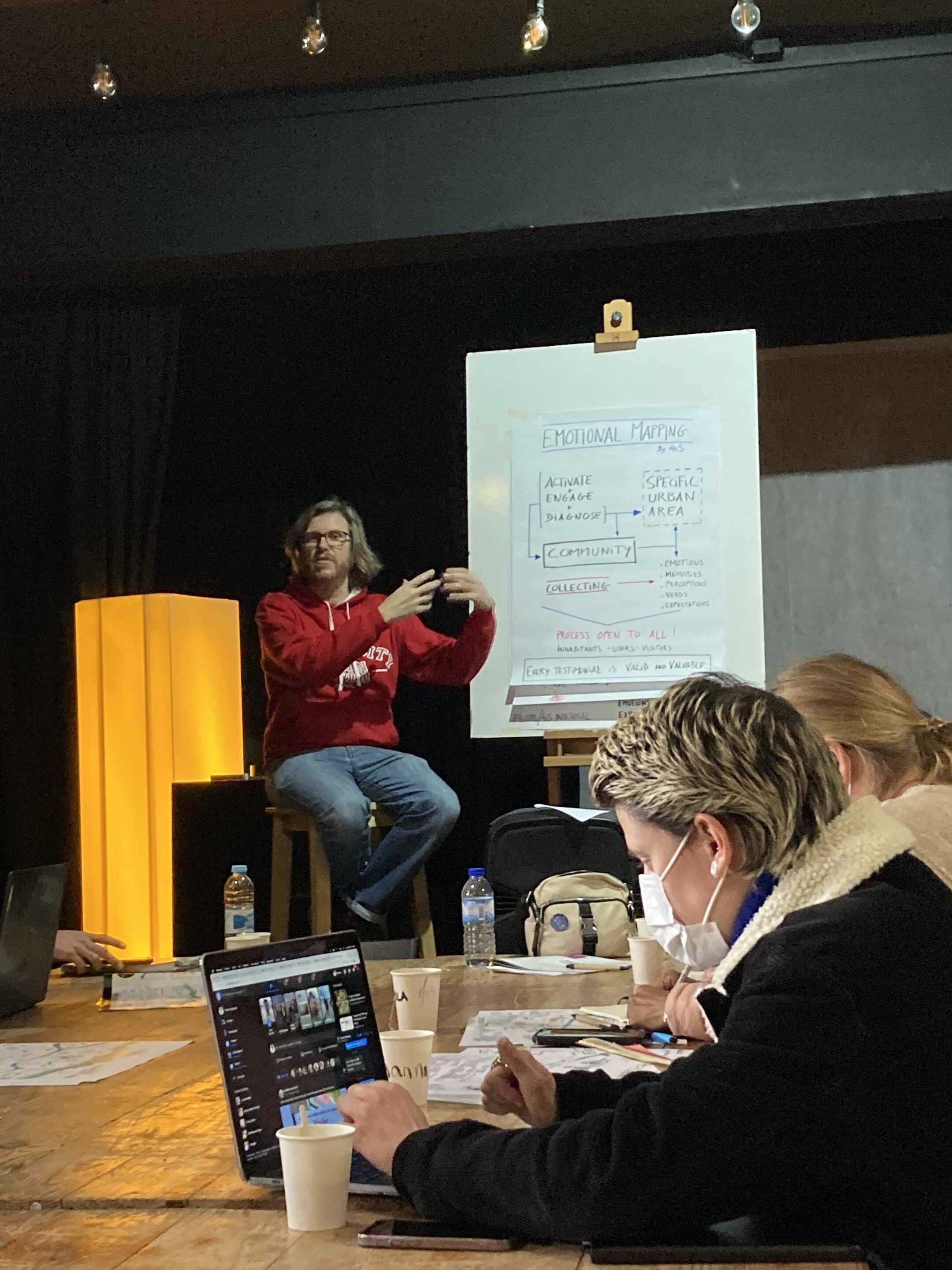 Tiago explaining the emotional mapping steps
Tiago explaining the emotional mapping steps Last but not least, Tiago Castro introduced us to another exciting method named “emotional mapping”, which we realised that we have already been practising in a similar format in VOYN! Hub’s second phase activities. Tiago’s initiative 4iS - Platform for Social Innovation developed and used this tool, which reportedly “aims to activate, engage and diagnose a specific area and community to process emotions, memories, perceptions, needs and expectations”. Because it can be practised by all the inhabitants, users as well as visitors of a place like us, we also tried it for our work in the city of Caldas through a short exercise. This exercise was simply based on a walk, preferably a silent one, in order to identify meaningful spots, surprising elements and emotions experienced through it. We saw it as a great opportunity for each of us to be engaged in Caldas on a deeper level. Since we were new to Caldas, we did not have time to explore the city mainly due to the fact that the workshop schedule was quite busy and the city itself was literally shutting down after 6 pm every day. At the end of the emo-mapping exercise, each work group presented and shared synthesis and their freshly built narratives about the city.
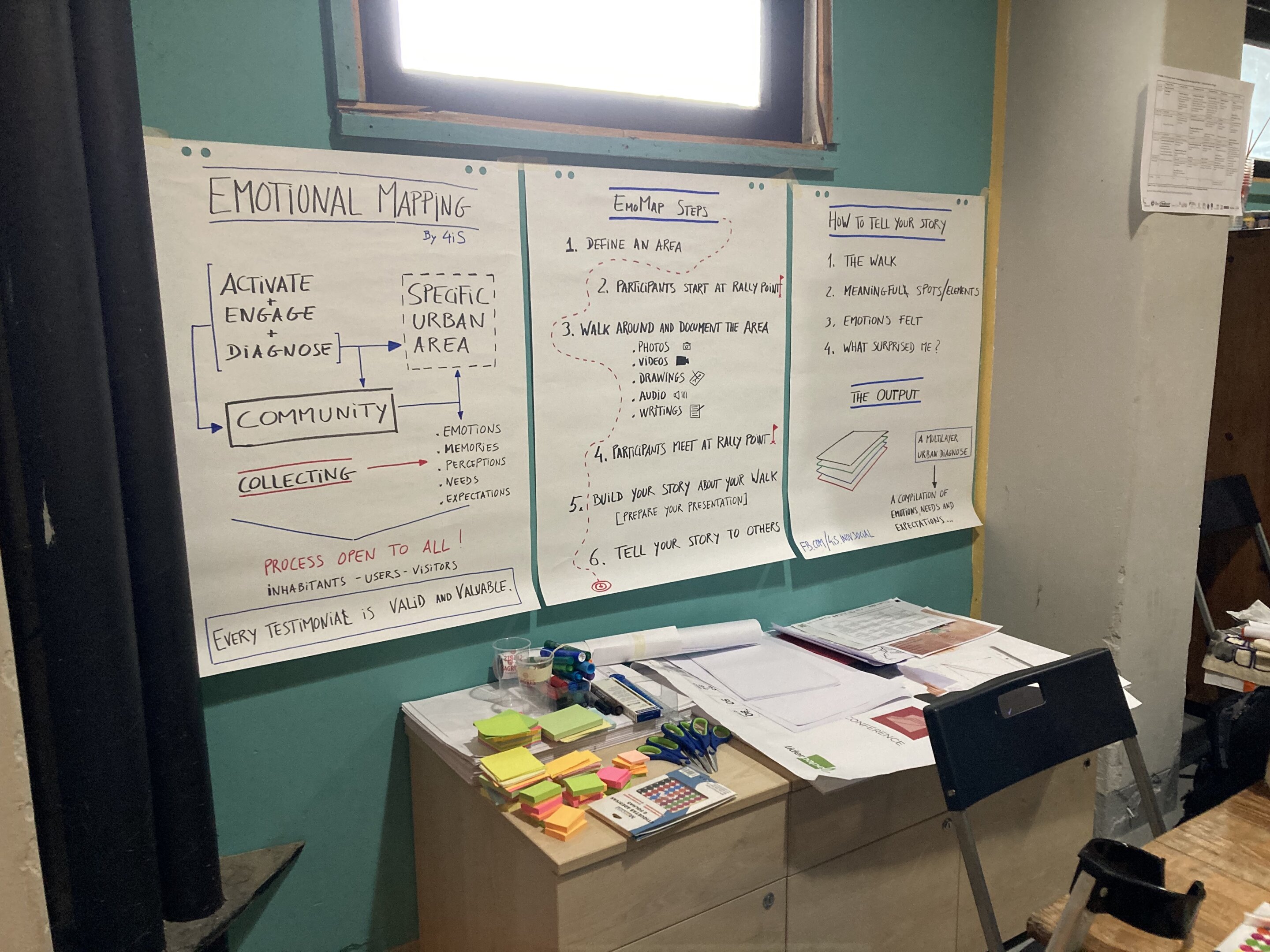 Emotional mapping steps and exercise reflections
Emotional mapping steps and exercise reflections 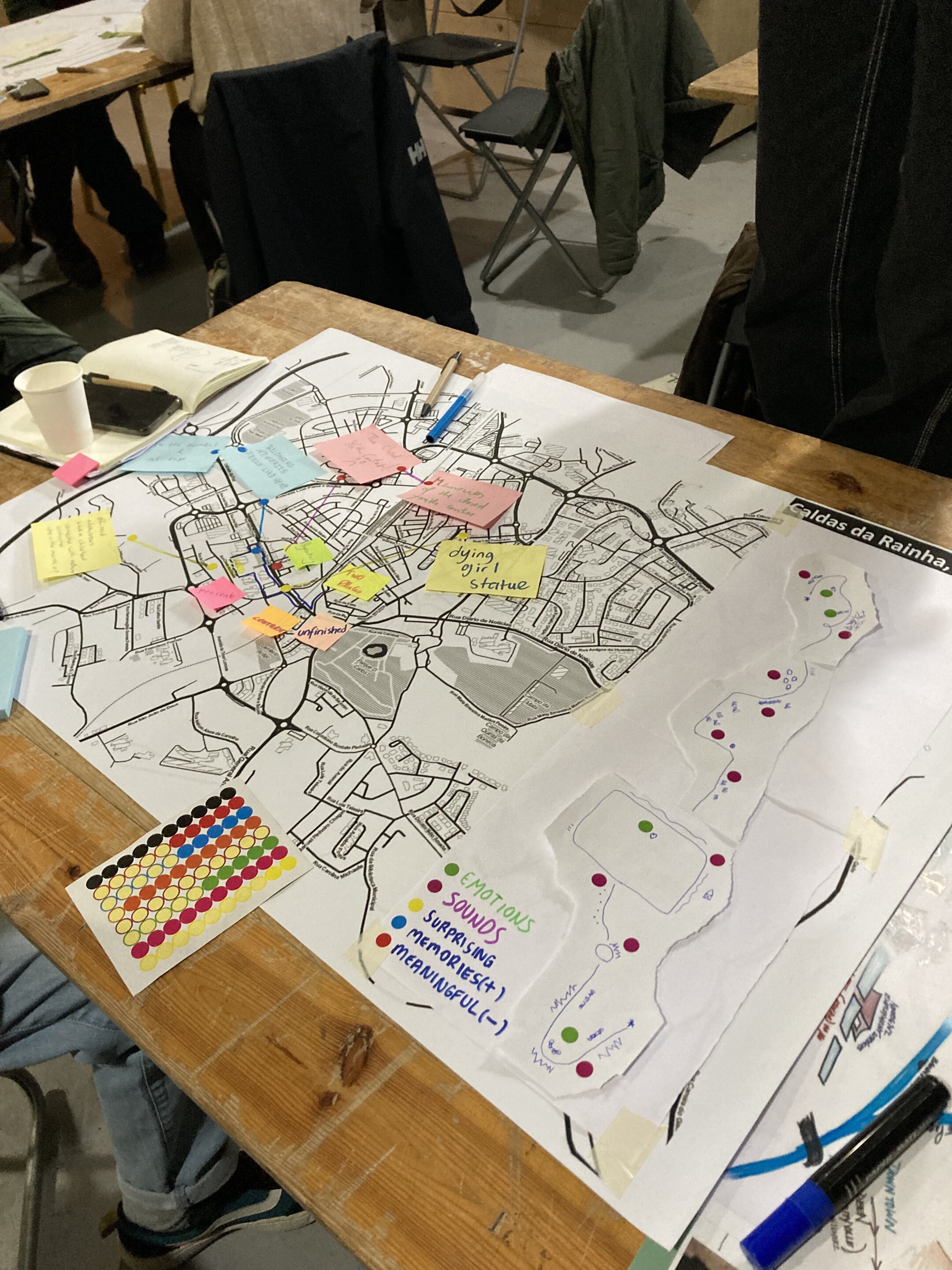
When the final day arrived, outcomes of this five-day school would be shared with the public audience via a joint presentation. We, as a group of more than 20 people, prepared a final presentation by bringing all the materials, knowledge, ideas and insights that we had in Caldas during the cultural mapping exercises and interviews with several people in the last couple of days. The creation of this final work was especially useful for us as well as Caldas dwellers, because it allowed us to practise layering the cumulative information and making our own knowledge and experience visible by a collective storytelling. Consequently, throughout the week, we, as outsiders, found several neglected characteristics and potentials of a city where we had not been or not known much before. By collecting the narration of individual life stories, we could finally make our observations visible and raise new questions, which could potentially and ideally lead to local development.
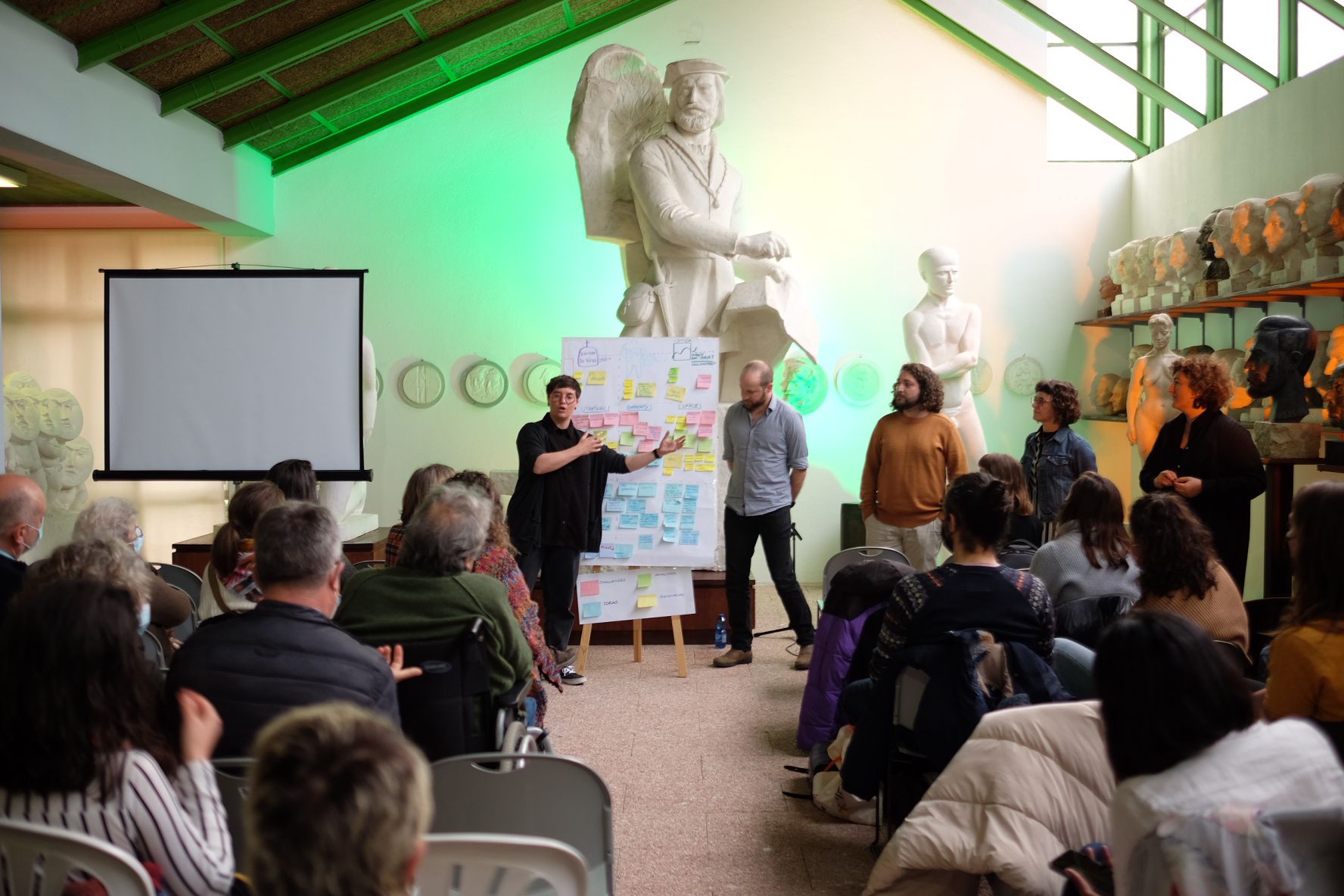 Group representatives sharing the summer school outcomes with the audience
Group representatives sharing the summer school outcomes with the audience 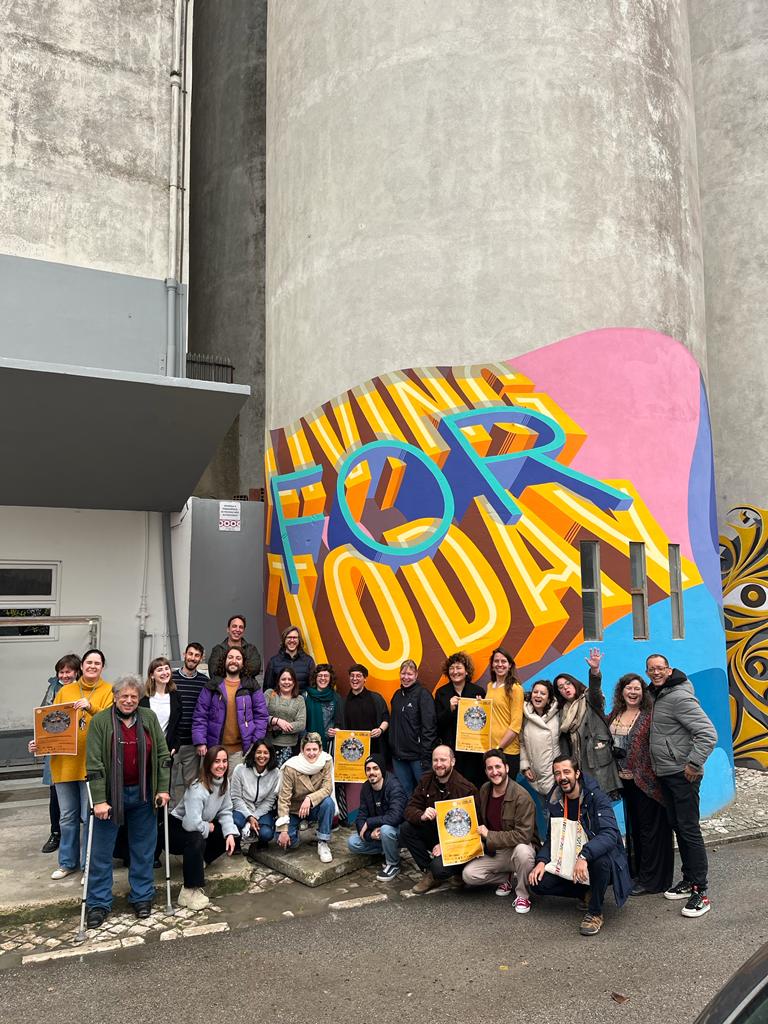 Group photo with all the participants and organisers
Group photo with all the participants and organisers Finally, during the summer school, we had the chance to meet amazing people from all over the world; Portugal, Israel, Germany, Ireland, Netherlands, Belgium, South Africa, Canada and Latvia; and gained comprehensive theoretical and practical knowledge about cultural mapping as a methodology for change by bringing communities together in new ways to co-create new meaning and understanding of a place. We are thankful to the organisers and hosts; grateful that we met all the participants; and definitely cannot wait to use all this knowledge and network in VOYN! Hub’s upcoming activities and events!
Text by Hüseyin Eryurt and Ilgın Tufan
Photos by Hüseyin Eryurt, Ilgın Tufan and misc.
*The Learning & Mobility Grant aims to foster knowledge and practice exchange among VAHA participants.


